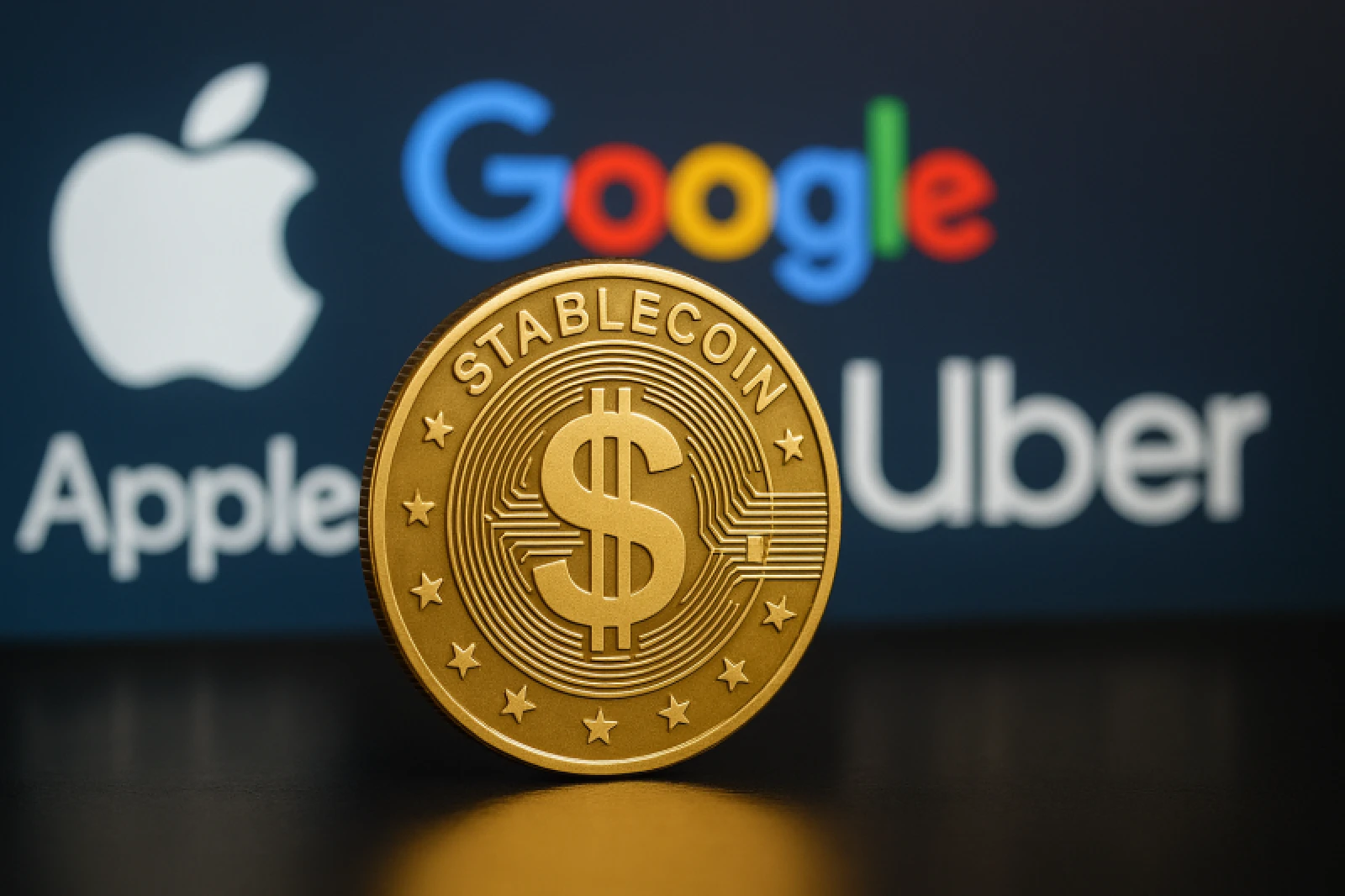Apple, Google, and Uber Quietly Test Stablecoins – A New Era of Payments?
Tech giants are exploring stablecoin payments to cut fees and boost efficiency. Could this mark the end of traditional card networks?

Crypto Laddin
Author

Apple, Google, X (formerly Twitter), Airbnb, and Uber are discreetly experimenting with stablecoins to revolutionize how payments work worldwide. With growing support under the Trump administration, stablecoins offer speed, low fees, and dollar stability—especially in B2B transactions, which have already reached $36 billion of the $94 billion total stablecoin market.
Tech companies are holding discussions with major payment processors like Stripe and Worldpay. Google Cloud now accepts PYUSD payments from select clients, and Airbnb is testing integrations with Worldpay. Meanwhile, X is exploring stablecoin support for its X Money app.
Uber and Meta are also investigating the use of stablecoins to reduce international transaction costs, especially for content creators and global service payments.
Still, adoption faces hurdles. Concerns over Tether’s auditing transparency and shifts in USDC ownership have made executives cautious about full-scale rollouts.
By bypassing traditional card networks, stablecoins pose a real threat to Visa and Mastercard, especially for cross-border and large-sum transactions. With the stablecoin market reaching a record $250 billion in capitalization, Standard Chartered forecasts $2 trillion by 2028. That momentum could accelerate if the GENIUS Act, a proposed bill to regulate stablecoins, passes in the U.S.





